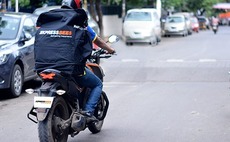
KKR kicks tires, buys Alliance
India is expected to see an increasing number of secondary buyouts in the next couple of years as GPs look for ways to monetize existing portfolios in the face of a difficult public market environment. While KKR's acquisition of Warburg Pincus' majority stake in Alliance Tire Group (ATG) conforms to the trend, Heramb R. Hajarnavis, a director at KKR, is keen to emphasize that this is no normal Indian company.
"You are likely going to see a lot more secondary deals in India arising from investments that took place between 2006 and 2008. We see ATG as fairly unique. At the time of the original investment this was still a greenfield business from a global perspective that the founder had come up with. You don't normally see this in an India context," he tells AVCJ.
Warburg Pincus took a 70% interest in ATG in 2007 as part of a $150 million buyout with Yogesh Mahansaria, former CEO of India's Balkrishna Tyres. The foundations were an Israeli entity but Mahansaria built the business into a global operation through a combination of bolt-on deals and organic expansion. Sales increased from $125 million to more than $500 million during Warburg Pincus' investment period.
ATG now has manufacturing plants in Israel and India, plus R&D facilities in Israel, India, the US and South Africa, employing more than 2,500 people worldwide. It specializes in off-road tires, typically used in the agricultural and construction industries, principally selling to customers in Europe and North America, although there are plans to boost market exposure in Latin America and Australia.
Future growth is expected to come through a combination of rising global demand - mechanized equipment is increasingly used in farming, for example - and a dominant market position. The big global tire manufacturers have moved away from the off-highways segment, potentially leaving more space for ATG.
According to sources familiar with the transaction, KKR has agreed to buy Warburg Pincus' controlling stake plus a small amount of equity from Mahansaria, who remains involved in the business. It will pay $450-500 million, and assume around $125 million in debt, for a stake in excess of 80%.
KKR is committing $300 million in equity from its first Asia fund, with Crescent Capital Group Ivy Funds' Ivy High Income Fund providing the remainder through a mezzanine financing tranche designed by KKR Capital Markets.
The private equity firm opted for mezzanine rather than issuing a high-yield bond via the public markets because of the flexibility it offers. When dealing with private investors, there is the possibility of negotiating to reduce the number or structure of the covenants on the debt and altering the interest payments schedule.
"This was a private structure, which allowed us to develop a bespoke financing solution, for example with covenants that fit the growth profile of the company," Hajarnavis adds.
Latest News
Asian GPs slow implementation of ESG policies - survey
Asia-based private equity firms are assigning more dedicated resources to environment, social, and governance (ESG) programmes, but policy changes have slowed in the past 12 months, in part due to concerns raised internally and by LPs, according to a...
Singapore fintech start-up LXA gets $10m seed round
New Enterprise Associates (NEA) has led a USD 10m seed round for Singapore’s LXA, a financial technology start-up launched by a former Asia senior executive at The Blackstone Group.
India's InCred announces $60m round, claims unicorn status
Indian non-bank lender InCred Financial Services said it has received INR 5bn (USD 60m) at a valuation of at least USD 1bn from unnamed investors including “a global private equity fund.”
Insight leads $50m round for Australia's Roller
Insight Partners has led a USD 50m round for Australia’s Roller, a venue management software provider specializing in family fun parks.







